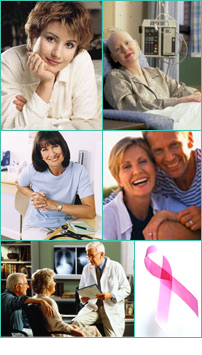Yes. The following types of treatments of breast cancer may cause pain as a side effect:
• Surgery
• Radiation therapy
• Chemotherapy
If you are a breast cancer patient undergoing treatment who has begun to feel pain or is experiencing an increase in pain, consult your oncologists for guidance on the pain medication or other approaches to manage pain that are appropriate for you.
Pain medications (called analgesics) are selected on the basis of the degree of severity of pain. Analgesics for mild-to-moderate pain are non-prescription (i.e., over-the-counter) medications. Analgesics for moderate-to-severe and very severe pain are prescription medications. For information on analgesics, see our Q&A called, "What are analgesics?"
Moreover, many options for controlling pain that do not involve medications are available, including:[1]
Homeopathic remedies (such as arnica), which can help relieve mild-to-moderate pain. Consult an experienced homeopath (a healthcare professional specializing in the use of homeopathic remedies) for selection of the homeopathic remedy that is appropriate for you.
• Acupuncture, which involves the insertion of thin needles into various sites that regulate pain sensations at different regions on the body. Upon insertion of the needles, you may experience a few moments of an electrical feeling, tingling, minor ache, or dull type of pain. Following placement of the needles, any discomfort from the needles ceases. After 15 to 30 minutes, the needles are removed. For acupuncture treatments, consult a licensed specialist in acupuncture.
• Biofeedback training, which utilizes machines to teach you to control your blood pressure, regulate the rate of your heart, and relieve tension in your muscles; assist in relaxation; and improve your coping with pain. For biofeedback training, consult a licensed biofeedback technician.
• Massage, which can be performed by a massage therapist, a trained caregiver, or yourself to relieve pain. Before having a massage, be sure to consult your oncologists to determine whether massages (and the use of massage oil) are appropriate, considering the treatments you are receiving and your current medical condition. If your oncologists recommend massage as a method for controlling pain, slowly hand massaging with a circular movement on or near the painful region in the presence or absence of lotion or warm massage oil may be helpful.
• Regular exercise can be beneficial in releasing endorphins (molecules that can inhibit signals of pain being transmitted to the brain), reducing anxiety and depression, providing energy, promoting more restful sleep, and relieving pain. Consult your oncologists to find whether exercise at this phase of your treatment and recovery would be helpful for you.
• Imagery, which utilizes imagining sensations (e.g., touch, sound, taste, smell) and visualizing restful scenes and pleasant situations in order to relax and reduce pain.
• Meditation, which involves calming the mind by focusing it on serene thoughts, awareness of breathing, or repeating a mantra (such as a simple sound or phrase). Practicing meditation reduces stress and provides emotional and spiritual strength for coping with pain.
• Counseling and support. Discussing your feelings about pain and your illness can reduce worry, anxiety, discouragement, depression, and pain. Talk with your family and friends about your situation. Consider counseling with a psychologist, physician, nurse, social worker, or clergy. Also, joining a support group in which you can talk with other breast cancer patients can be helpful.
REFERENCE
1. Managing pain. Accessed at www.chemotherapy.com
|


